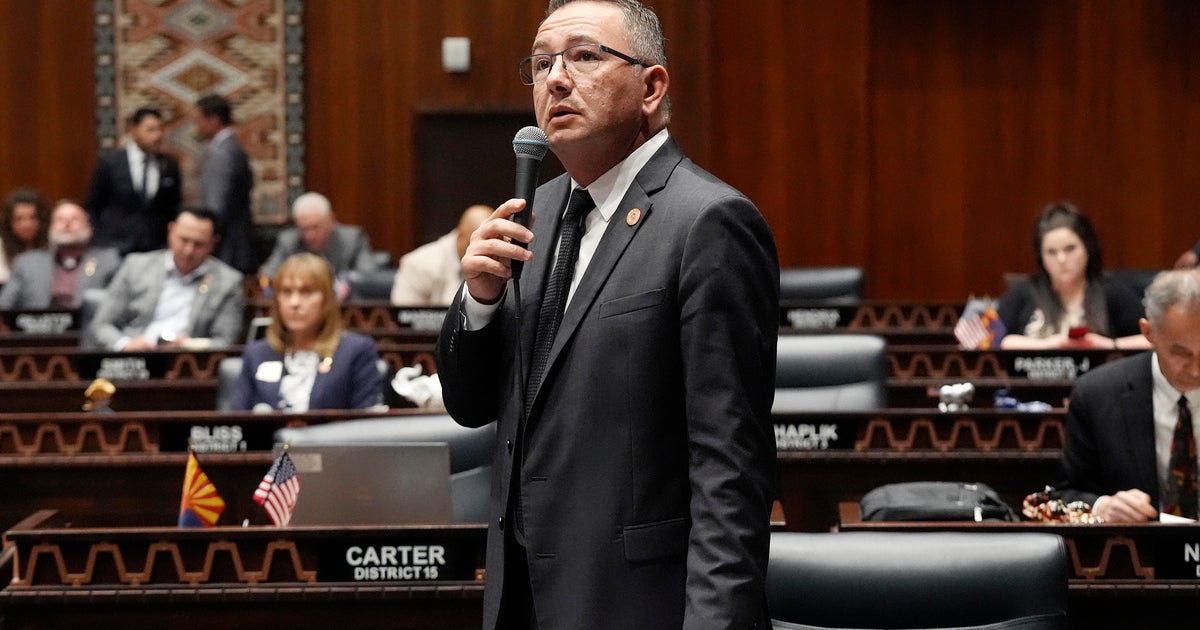Pompeo says Trump administration doing "everything" it can to free Americans in Iran
Warsaw, Poland -- "We're doing everything we can" to secure the release of U.S. nationals held prisoner in Iran, U.S. Secretary of State Mike Pompeo told CBS News on Wednesday. He would not confirm whether the administration of U.S. President Donald Trump is directly communicating with Tehran about the issue or whether it is considering a prisoner swap.
"We're having conversations with all the people who have the ability to help get them back," Pompeo said.
At least four U.S. citizens and one U.S. resident are currently detained in Iran. Washington and Tehran have not had diplomatic relations since just after Iran's Islamic Revolution in 1979. Direct contact between the two countries was cut off completely after Mr. Trump withdrew from the Iran nuclear deal in May.
"There is no direct dialogue with Iran on [the American prisoners] or any other issue," an American academic familiar with the matter told CBS News, speaking on condition of anonymity. "Lack of any dialogue means the prison doors will remain closed."
Calls for freedom
Friends and family members of Americans incarcerated in Iran told CBS News they appreciate the Trump administration's repeated calls for their loved ones' freedom. They wondered, however, why the United States could negotiate deals for the release of American prisoners with other countries like Egypt, Turkey, and North Korea but not with Iran.
"Each of those families should know we're doing everything we can to get their loved ones home," Pompeo reiterated. "Each of the detainees we've returned to date has come back because we have demanded it and we've made the case for why it was in that country's best interest to do so. Rest assured that we've done that with Iran as well."
When asked whether the administration would be able to free the American detainees from Iran without a payment or exchange of prisoners, he would only say they intended to do it, "the same way we've gotten everyone back so far."
Iran's foreign minister told CBS News last April that his country would consider a prisoner swap, calling it a "possibility, certainly from a humanitarian perspective."
Mr. Trump, however, has said he will not broker the type of deal that President Barack Obama approved in 2016, which freed five Americans, including Washington Post journalist Jason Rezaian, in exchange for the United States releasing or dropping charges against seven Iranian-Americans accused of violating U.S. sanctions.
Imprisoned or missing
Iranian-American executive Siamak Namazi, who was arrested in October 2015, has been behind bars longer than any of the Americans now imprisoned in Iran. He and his father, Baquer, a former UNICEF official who is also an Iranian American, are each serving a 10-year sentence on charges of "collaboration with a hostile government," referring to the United States — a charge they and their families deny.
"My father is dying," Baquer's son, Babak, told CBS News, citing the 82-year-old's heart problems and epilepsy.
"His health is getting progressively worse, and I really implore the Iranian government to let him out of Iran for humanitarian reasons for urgent medical care."
He said he knows that the Trump administration is working hard to free all Americans imprisoned in Iran but that direct dialogue may be needed.
"At the end of the day, I believe there will also be a need for direct engagement to discuss this topic purely on a humanitarian basis with Iran, if there isn't one already," he said. "This is in line with the idea of leaving no American behind and sparing no efforts to bring them home safely."
Another detainee is Michael White, a Navy veteran from California. His mother told CBS News he has been in captivity in Iran since last summer, though she is not aware of any charges against him.
Robert A. Levinson, a former F.B.I. agent, disappeared on a 2007 visit to Iran. His daughter Sarah Moriarty told CBS News her family believes Iran knows where he is, but Iranian officials say they do not.
Nizar Zakka, a Lebanese citizen and U.S. resident, is serving a 10-year sentence for espionage — a charge he denies.
Xiyue Wang, a U.S. citizen and Princeton researcher, is also serving a 10-year sentence in Iran. He is accused of being a "foreign agent infiltrating" the country under the guise of being a scholar, an allegation his family calls "spurious."
"Xiyue's imprisonment is a humanitarian tragedy," his wife, Hua Qu, told CBS News. "His release should be treated as a humanitarian necessity — separate and apart from the political and security talks, or lack thereof.... I just want my husband home and for my young son to see his father again. I just want this nightmare to be over for my family."



